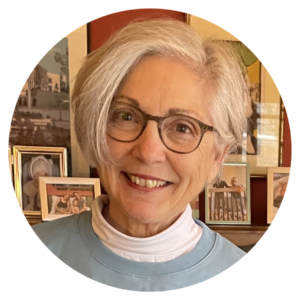This blog post was written by NCTE member Carol Jago.
Many teachers today find themselves crippled by curricular caution. I worry that self-censorship may ultimately have more of an impact on what is and isn’t read than school district bans. Results of a survey conducted by School Library Journal suggest that one reason censorship attempts are likely to have a long-lasting insidious effect on school library collections has to do with library purchasing. Removed books can be counted. What about the books that are never bought?
Terry Stout Anderson, an NCTE member, friend, and district coordinator for secondary English in a large Midwestern school district, told me, “I don’t want teachers in my district to play it safe, but I do want English teachers across our district to feel safe when engaging students in adventurous thinking and free inquiry.”
No book worth teaching is neutral or without troubling moments. The latest controversy over Puffin Books changing Roald Dahl’s words is a case in point. Suzanne Nossel, CEO of the free expression advocacy group PEN America, called the changes alarming. “Amidst fierce battles against book bans and strictures on what can be taught and read, selective editing to make works of literature conform to particular sensibilities could represent a dangerous new weapon. Those who might cheer specific edits to Dahl’s work should consider how the power to rewrite books might be used in the hands of those who do not share their values and sensibilities.”
Alas, even the most perfect book adoption process still cannot protect teachers from a potentially raucous school board meeting. Professional communities can help us navigate these difficult times. PEN America, the American Library Association, the National Council of Teachers of English, and the International Literacy Association have created forums, book rationales, and protocols for book adoption processes. Educators committed to bringing great literature into classrooms do not need to go it alone.
As Maurice Sendak remarked in his 1964 speech accepting the Caldecott Medal for Where the Wild Things Are, “Truth, honesty, and above all respect for readers are inherent in quality literature for children. It can empower them, particularly in frightening times, and is the best means for taming Wild Things.”

Carol Jago has taught middle and high school English in public schools for 32 years and is associate director of the California Reading and Literature Project at UCLA. She served as president of the National Council of Teachers of English and as chair of the College Board’s English Academic Advisory committee.
She has published several books, including The Book in Question: Why and How Reading Is in Crisis, With Rigor for All, and Papers, Papers, Papers: Handling the Paper Load. She has also written books about teaching the works of Nikki Giovanni, Alice Walker, Sandra Cisneros, and Judith Ortiz Cofer for the NCTE High School Literature Series.
Jago wrote a weekly education column for the Los Angeles Times; she continues to contribute opinion pieces to professional journals, newspapers, and online forums. She also edits California English, the quarterly journal of the California Association of Teachers of English.
She is an author on the Bedford/St. Martin’s AP Literature & Composition textbook and a consulting author to the HMH Into Reading and HMH Into Literature programs.
Jago has been awarded the International Literacy Association’s Adolescent Literacy Thought Leader Award and the National Council of Teachers of English CEL Exemplary Leadership Award. In 2020 the California Association of Teachers of English honored her with a Lifetime Achievement Award. A recent member of the National Assessment Governing Board, which oversees NAEP, she currently serves on the executive board of the International Literacy Association. Jago is currently serving as a member of NCTE’s Build Your Stack® Committee.
It is the policy of NCTE in all publications, including the Literacy & NCTE blog, to provide a forum for the open discussion of ideas concerning the content and the teaching of English and the language arts. Publicity accorded to any particular point of view does not imply endorsement by the Executive Committee, the Board of Directors, the staff, or the membership at large, except in announcements of policy, where such endorsement is clearly specified.

